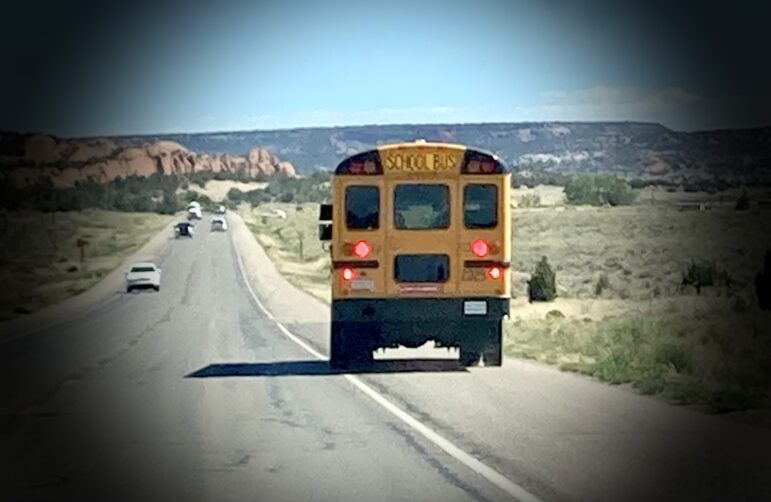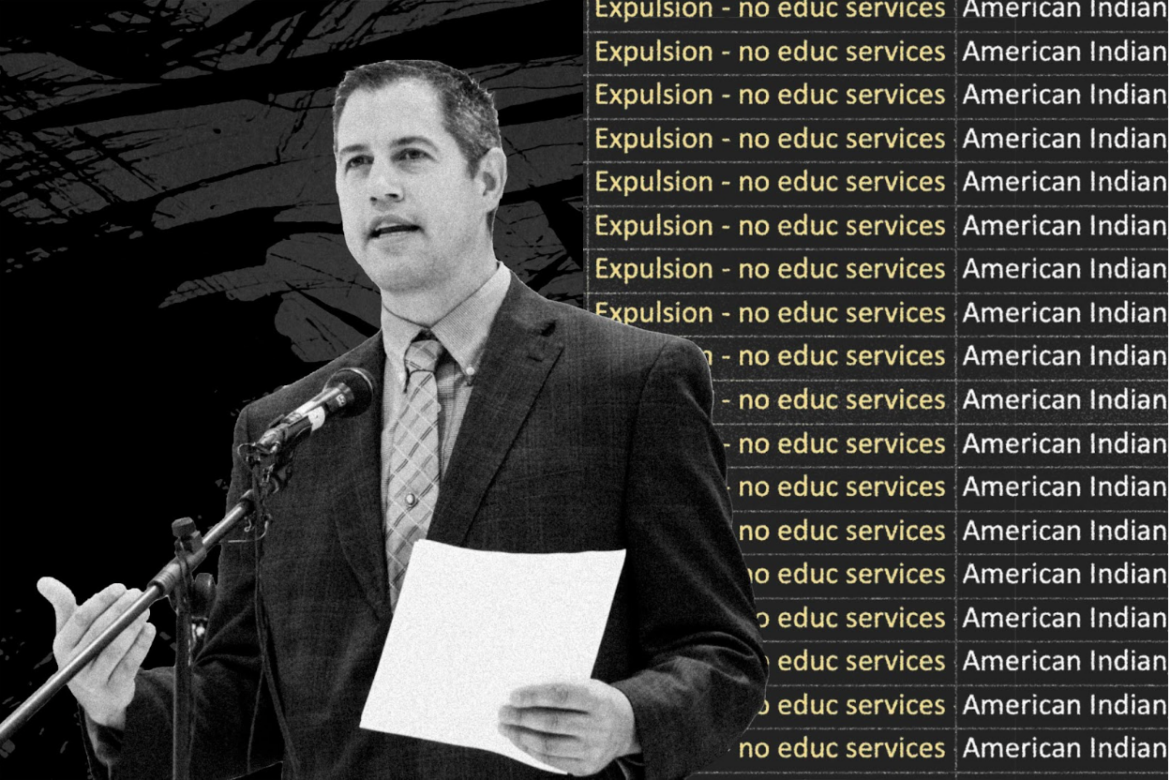At New Mexico in Depth and ProPublica, we practice “no surprises” journalism: No one should read anything about themselves in our articles without first having had a chance to respond.
So journalists in our newsrooms were surprised to read in the Gallup Sun, a weekly newspaper, that the superintendent of Gallup-McKinley County Schools had criticized our story about his school district. We had given him ample opportunity to respond to our reporting, but the Sun did not give us that opportunity in turn.
Superintendent Mike Hyatt told the Sun and school board members that he ignored our requests to talk to him because he believed we had a predetermined narrative.
That’s not the case. ProPublica, a national nonprofit investigative news outlet, partnered with New Mexico In Depth, a state-based nonprofit news organization, to look at school discipline across New Mexico. We wanted to understand what was driving high rates of discipline for Native American students in the state.
We found that Gallup-McKinley County Schools was responsible for a disproportionate amount of the disparity. It has a quarter of the state’s Native students, but it accounted for at least three-quarters of Native student expulsions in the state during the four school years ending in 2020.
Our Dec. 21 story was republished by the Albuquerque Journal, the Gallup Independent and the Gallup Sun.
This article was produced in partnership with ProPublica’s Local Reporting Network.
Sign up for Dispatches to get stories from ProPublica like this one as soon as they are published. And sign up here for New Mexico In Depth stories.
We had reached out to the school district months earlier, in February 2022, to ask about disparities in discipline between Gallup-McKinley and other school districts in New Mexico. We called and emailed repeatedly over the following months, reiterating our desire to talk to district officials and asking for additional data. Hyatt was copied on almost 100 emails with district staff.
We emailed Hyatt a 10-page letter on Nov. 11, a month before publishing our story, to detail our findings, ask again for an interview and seek clarifications or corrections. We never heard from him.
Hyatt disputed our findings at a school board meeting on Jan. 9 and elaborated in the Sun article on Jan. 27.
He said most of the 211 expulsions we found in the district’s own data for the four academic years ending in 2020 should be reclassified as suspensions because those students were not permanently removed from school. Under that definition, he said, the district had expelled just 15 students over the most recent seven years.
The Sun sent us an email on Jan. 25 to say it planned to publish a story in response to ours, which would include an interview with Hyatt. When we asked for the opportunity to respond to claims about our work, the reporter refused, saying we could respond afterward. Gallup Sun publisher Babette Herrmann later told us that was her call. She didn’t think it was necessary for the reporter to interview us, she said, even though the story quoted Hyatt criticizing our reporting.
Here’s what we would have said if the Sun had given us the opportunity to respond.
After a careful review of the data, we stand by our conclusions. Our analysis relied on the district’s own data as reported to the state, and the vast majority of expulsions we analyzed fit the district’s definition at the time. Before this school year, the district’s handbook defined an expulsion as a removal from school for at least 90 days and up to 365. Now it says an expulsion is a “permanent” removal from school.
Our original reporting found that Gallup-McKinley was responsible for at least three-quarters of all Native expulsions in the state over four years. That held true when we counted all removals from school of 90 days or longer, regardless of whether they were called suspensions or expulsions.
We also reported that Gallup-McKinley’s expulsion rate for those four years was at least 10 times as high as the rest of the state. When we counted all removals from school of 90 days or longer — again, regardless of whether they were categorized as expulsions or suspensions — Gallup-McKinley’s rate was just as high.
In addition, we looked at suspensions and expulsions longer than 10 days. Gallup-McKinley still reported far higher rates of these removals than the rest of the state.
Our findings remain unchanged: Gallup-McKinley County Schools is responsible for an outsized share of serious punishments of Native students in New Mexico. Revising the definition of an expulsion does not alter that fact.

Download the Data
We’ve compiled enrollment and discipline data on all New Mexico school districts. Download it here.
Hyatt’s comments come after months of denials and delayed responses to many of our public records requests. When we asked for enrollment data broken down by race, the district at first claimed the data didn’t exist. Then they said they couldn’t provide it. We eventually got it from the state, which had received it from the district.
That pattern continues. When we asked to see the documents that Hyatt read from during his presentation to the school board, the district responded that they’d need at least another 30 days to provide them because doing so within the 15-day legal deadline was too onerous.
A principal even called the police when we came to the school to drop off a document saying a student’s guardian had given us permission to review the student’s school discipline records. (We dropped off the form without incident and only later learned, as we reviewed emails obtained through a public records request, that the principal had called the police.)
According to Gallup-McKinley’s own numbers, the district bears significant responsibility for the disparity in harsh punishments faced by Native students in New Mexico. We worked hard to understand that data. We engaged with the school district at every turn. And we believe it was in the public interest to share what we found.
Marjorie Childress is managing editor at New Mexico In Depth. Steve Myers is a senior editor at ProPublica’s Local Reporting Network.
